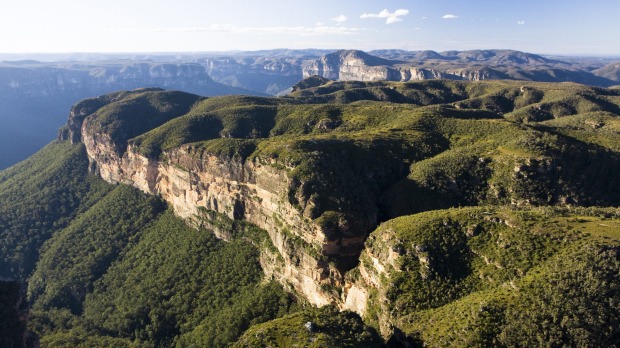Blue Mountains World Heritage listing
The Greater Blue Mountains Area was inscribed on the World Heritage List in 2000 in recognition of its significant natural values. It possesses unique plants and animals that relate an extraordinary story of the evolution of Australia’s distinctive eucalypt vegetation and its associated communities.
The Greater Blue Mountains Area was unanimously listed as a World Heritage Area by UNESCO on 29 November 2000, becoming the fourth area in New South Wales to be listed. The area totals roughly 10,000 square kilometres (3,900 sq mi), including the Blue Mountains, Kanangra-Boyd, Wollemi, Gardens of Stone, Yengo, Nattai and Thirlmere Lakes National Parks, plus the Jenolan Caves Karst Conservation Reserve.
This site was chosen to be included on the World Heritage list because:
“Criteria (ii) and (iv): Australia’s eucalypt vegetation is worthy of recognition as of outstanding universal value, because of its adaptability and evolution in post-Gondwana isolation. The site contains a wide and balanced representation of eucalypt habitats from wet and dry sclerophyll, mallee heathlands, as well as localised swamps, wetlands, and grassland. 90 eucalypti tax (13% of the global total) and representation of all four groups of eucalypts occur. There is also a high level of endemism with 114 endemic taxa found in the area as well as 120 nationally rare and threatened plant taxa. The site hosts several evolutionary relic species (Wollemia, Microstrobos, Acrophyllum) which have persisted in highly restricted micro sites”.
Source: https://en.wikipedia.org/wiki/Blue_Mountains_(New_South_Wales)
More info: https://whc.unesco.org/en/list/917/

